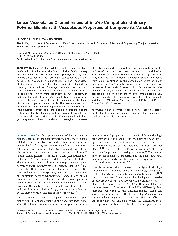摘要
By Friedel-Crafts alkylation reaction, catalyzed by a Lewis acid of anhydrous aluminum chloride (AlCl(3)), binary polymer blends of polypropylene (PP)/polystyrene (PS) with volume proportion of 80/20 were in situ compatiblized and prepared in an XSS-30 melt mixer at 210 degrees C. The linear visco-elastic characteristics of the blends were investigated by checking the variations of storage modulus, loss modulus, complex modulus, and complex viscosity of the in situ compatiblized blends, which were dependent on AlCl(3) content. In addition, Han plots of the in situ compatiblized blends with different AlCl(3) content were also used to characterize the linear viscoelastic properties of the blends. The results showed that both the dynamic rheological parameters and the Han plots were obviously influenced by the rheological properties of the matrix and slightly influenced by the rheological properties of the dispersed phase. Further investigations revealed that phase geometry contributions to the dynamic rheological parameters of the blends could be ignored in comparison with the contributions of the components and the interfacial modification, which were defined and obtained according to log-linear-additivity rule. The linear viscoelastic characteristics of the blends were mainly controlled by the combination of the effects of interfacial modification between phases and the rheological properties of the matrix. Storage modulus is the most sensitive dynamic rheological parameter to characterize the interfacial compatiblization effects in the in situ compatiblized binary polymer blends with rheological properties of components variable.
- 出版日期2010-6-15
- 单位天津大学
